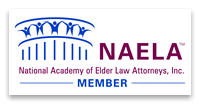Special Needs Trusts
A special needs trust is a unique type of trust that can be used to conserve an elderly or disabled person’s assets, yet still qualify for Medicaid, Supplemental Security Income (“SSI”), and possibly other public benefits. The assets of a special needs trust can provide for non-support, quality of life needs of the beneficiary of the special needs trust.
The reason for the income and asset limitations associated with eligibility for Medicaid and SSI is that an elderly person or a disabled person having assets could use those financial resources to privately pay for health care needs including the costs of attendant care in a home or in a care facility. Therefore, a person who has assets or a person who is receiving assets from an inheritance, a gift, or a personal injury settlement may be ineligible for Medicaid and SSI until the assets are spent. Proper planning such as the establishment of a special needs trust may result in the person being able to use assets for special needs rather than spending the assets on health care and attendant care needs that could be provided by Medicaid.
Several types of special needs trusts are described below. We can assist you to determine which trust is most appropriate for your needs or the needs of your family member including a disabled minor or adult child, an elderly parent, or disabled or ailing spouse. We assist you to determine whom to select as a trustee, how to ensure the proper checks and balances are in place to be sure the trust is appropriately administered, and advising on proper distributions from the trust.
Disability Trust
A disability trust is a trust established for the sole benefit of a disabled person to preserve the person’s assets without jeopardizing eligibility for Medicaid and SSI. A disability trust must be funded with the person’s own assets. A disability trust can be established only for persons under the age of 65 years pursuant to federal and state law. Because a disability trust is funded with the person’s own assets, any assets remaining in the trust at the death of the trust beneficiary must first be used to reimburse Medicaid for the medical assistance provided to the person. Any assets that remain after reimbursement to Medicaid can be distributed to the beneficiary’s heirs.
Third Party Trust
A third party trust is a trust established for the benefit of an elderly or disabled person and is funded with the assets of persons other than the beneficiary. If family members or friends or others have assets they wish to give to an elderly or disabled person without interfering with the person’s eligibility for Medicaid or SSI, the assets can be used to fund a third party trust for the person’s sole benefit. The settlor (i.e., the person who creates the trust) of the third party trust can direct how the trust assets will be distributed upon the death of the beneficiary.
Testamentary Special Needs Trust
A testamentary special needs trust is one that is set forth in a person’s last will and testament or revocable living trust and is only established and funded after the death of the testator of the will or the settlor of the revocable living trust. A testamentary special needs trust is funded with assets of the decedent for the benefit of the named beneficiary. The testator can direct the distribution of any assets that remain in the testamentary special needs trust at the death of the beneficiary.
Pooled Trust
A pooled trust is funded with the assets of an elderly or disabled person and the assets are then pooled with other pooled trust beneficiaries’ assets with the goal of lower of administrative costs and to allow the larger pooled principal to be increased for investment purposes. However, each beneficiary’s assets are segregated into separate accounts. Pooled trusts
operate similarly to other types of special needs trusts as the funds in the beneficiary’s pooled trust account are available to provide for the beneficiary’s special needs and without causing ineligibility for Medicaid or SSI. The only pooled trust in Colorado is administered by the Colorado Fund for People with Disabilities (“CFPD”), a non-profit corporation that manages, administers, and disburses the pooled trust funds to the beneficiaries.



